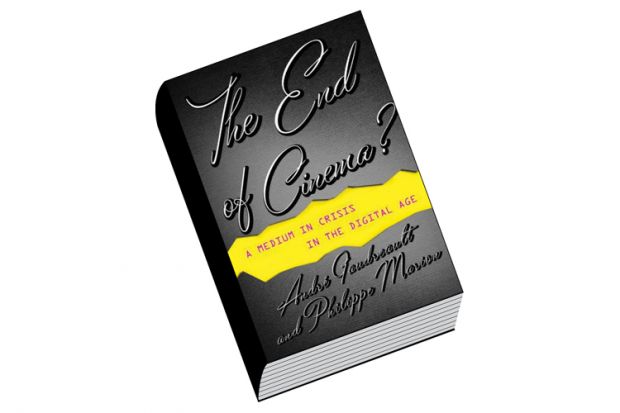According to the authors (one Québécois, one French), reports of the death of cinema, like that of Mark Twain, are exaggerated. André Gaudreault and Philippe Marion derive a good deal of amusement from poking fun at the various doomsayers, starting with Antoine Lumière who in 1895, only months after his sons Louis and Auguste had pioneered what is generally recognised as the first ever public film-show, allegedly told Georges Méliès that the cinema was “an invention with no future”.
This, according to the authors’ slightly tongue-in-cheek enumeration, is the first of eight deaths of the cinema. Some are more substantial than others: the coming of sound, which in effect killed off silent cinema (“death” number four); or the advent of mass television (“death” number five). By contrast, the pronouncement of maverick British film-maker Peter Greenaway that “Cinema’s death date was 31 September 1983, when the remote-control zapper was introduced to the living-room”, is hard to take seriously – not least because no such date exists.
Numerous past authorities are cited – not least the great critic André Bazin, godfather of the nouvelle vague, who in 1958 roundly stated that “Cinema has not yet been invented!” The bulk of the book, though, is concerned with the present day, when two separate phenomena are fundamentally changing the way we receive moving images. One is the seemingly inexorable move away from “film” projection (involving the classic 35mm celluloid film) to digital projection in movie theatres; the majority of films across the world are now shot, and projected, digitally. The other is what the novelist Will Self calls “the whirlwind of moving images” – the ever-expanding proliferation of technology on which those images may be viewed: TV screens, computer screens, games consoles, mobile phones, tablets, iPads and so on.
This latter trend has led to “the big screen’s loss of its hegemony” – but is this something we should mourn? And does it matter that the vast majority of cinema-goers have no idea whether the film they are watching is on celluloid or digital, and probably don’t much care? To the traditionalists, such as theorist Raymond Bellour: “A film projected in a movie theatre in the dark for the fixed duration of a screening…alone merits being called ‘cinema’.” Director Bruno Dumont argues that, since human beings are made up of chemistry and so is celluloid, those watching an old-style projection “react in a certain way, chemistry against chemistry, which is not possible with digital media”.
Where do Gaudreault and Marion stand on all of this? Ultimately, with some hedging of bets, they come down on the side of what they term the “cineeuphorics”, those who believe that what we call cinema is proving itself far less rigid than the traditionalists believe, infinitely flexible and “more open to hybridization” – and that in so doing, it could be said to be returning to its primitive roots, when “the kinematograph was part magic lantern, part stage show, part photography, and so on”.
This could have been a dry thesis. But despite occasional lurches into hypercritical jargon, and a few anguished neologisms (“spectactors”, “neguentropy”) which doubtless sound as clumsy in French as they do in English, the authors maintain a light, even ludic tone that keeps their work readable and refreshingly entertaining.
Philip Kemp is visiting lecturer in film journalism, University of Leicester.
The End of Cinema? A Medium in Crisis in the Digital Age
By André Gaudreault and Philippe Marion
Translated by Timothy Barnard
Columbia University Press, 256pp, £62.00 and £20.50
ISBN 9780231173568, 1173575 and 1539388 (e-book)
Published 14 April 2015
Register to continue
Why register?
- Registration is free and only takes a moment
- Once registered, you can read 3 articles a month
- Sign up for our newsletter
Subscribe
Or subscribe for unlimited access to:
- Unlimited access to news, views, insights & reviews
- Digital editions
- Digital access to THE’s university and college rankings analysis
Already registered or a current subscriber? Login
